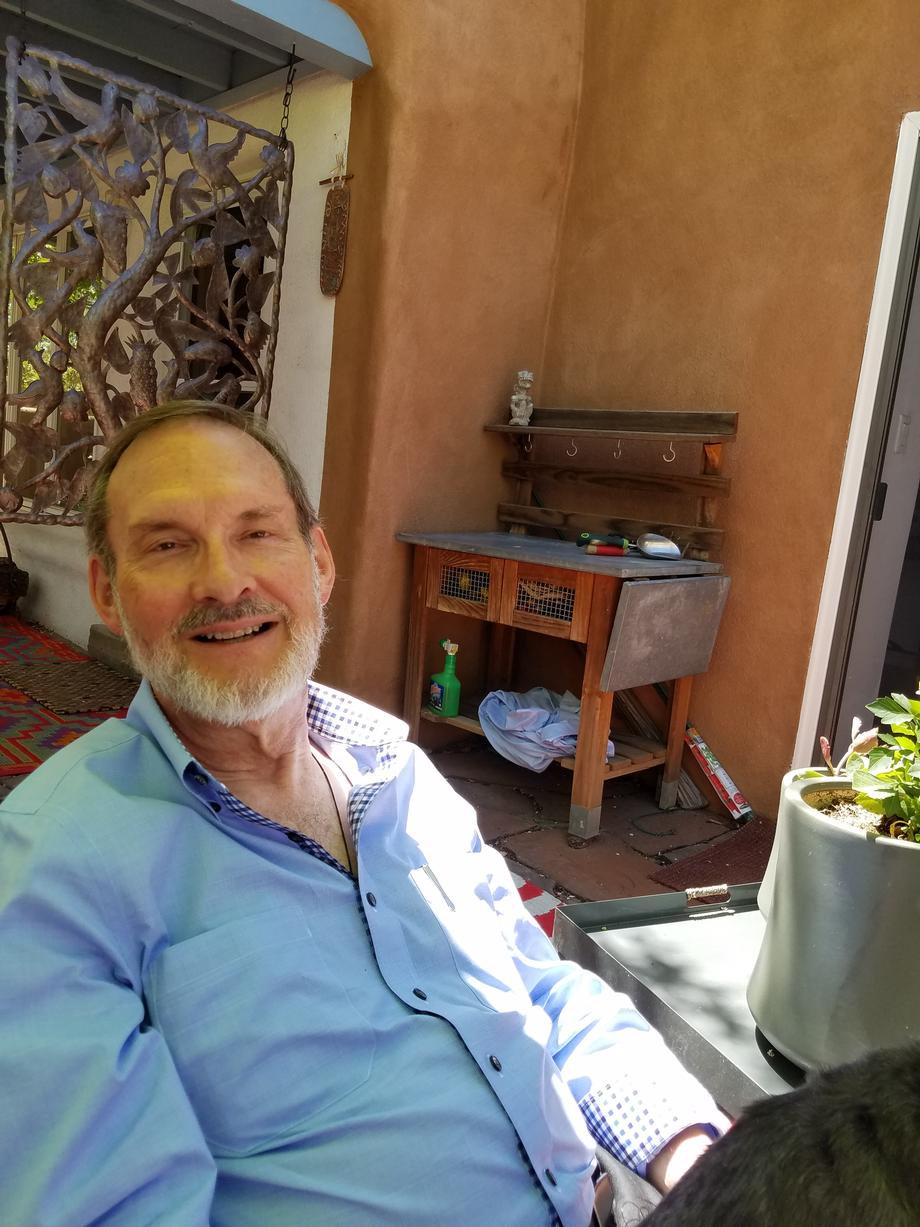FAQ
 Q: What is your personal background?
Q: What is your personal background?
A: I was born 68 years ago in Carlsbad, NM and have been a Financial Advisor for 22 years. My late wife was a speech pathologist; my daughter is a writer living in Portland Oregon. I have a BA in Social Science from Michigan State University (James Madison College). I focused on what was called, at the time, Uban Community Policy Problems, later styled Political Economics. Specifically I analyze federal, state and local policy issues to see how complex social systems fit together. My training in economics covered national macro-economic issues as well as the economic behavior of firms and individuals.
Previously I served thirteen years researching the economic impact of tourism on New Mexico and guiding State Tourism Office marketing and promotion decisions. Then I spent nine years representing Nobel/Sysco Food Services selling food equipment and supplies to restaurants and institutional food service operations.
Q: You describe your office as a boutique. What does that mean in the financial services industry?
A: These days transactions in equities are a commodity, but service is not. The do-it-yourselfer has many alternatives to work with including internet and phone discount brokers, but, I believe, it is highly unlikely that representatives of these types of firms can know their clients' needs and situations as well as someone who has worked with them face-to-face over many years. A boutique is client centered, intimate, relaxed, long-term and experienced.
Q: How do you maintain that kind of office as part of Raymond James & Associates?
A: With some pride, I can say that our Santa Fe office has people who have been helping investors for over 30 years. We take full advantage of the corporate technology, exchange memberships and economies of scale of the parent corporation. But our experience makes us less reliant on corporate suggestions for investment solutions.
Q: How are you compensated?
A: For some clients a fee-based approach is most appropriate and I charge that way if the client and I decide it is in their best interest.
We also have a competitive schedule of full-service brokerage commissions. The exact amount depends on the type and size of the transaction and what exchange or market is used. We may also receive a small ongoing fee from mutual funds sold. I do not participate in sales contests or accept financial incentives to move certain products.
Q: What do you do for the investor?
A: First, I help the client identify their short-term and long-term needs and goals. Short-term objectives dictate short-term approaches whereas long-term objectives should be met with long-term investment portfolios. Listing these needs and goals in writing helps clients to clarify and describe their current situation.
There are thousands of financial instruments available. From these, through fundamental analysis and charting trends, I identify several hundred investments that in various allocations address a variety of investment situations. I select those I believe have the most potential at the time the client has funds to invest in keeping with the overall objectives of the portfolio. Keeping things in balance is very important.
I manage my personal accounts according to the same principles. As I participate in the market at the same time as my clients, I am not a passive observer. My own activity adds to my experience and makes me better able to help my clients. I do not discuss client accounts with anyone but the client, but I am willing to show my own accounts to clients so they can see the effects, both good and bad, of this approach.
Q: What is your ideal client?
A: A good investor understands that a changing world requires us to change and adapt to it. I love working with young people, especially when I can help them anticipate what is to come. I love working with older people who are facing the challenges of covering their expenses while trying to leave something for their children or to help the community.
Nothing is too small to start with; nothing too large to end with. However, if a beginner does not want to build wealth or the established investor does not want to manage what they have, other brokers that be a better fit. Smaller accounts may be better served by diversified investment products. Very large accounts may benefit from access to investments in alternative assets and some other specialized approaches.
As a practical matter, a stock transaction of $10 thousand is more cost effective than a smaller transaction. An account holding twenty or more such positions gives better diversification than a more concentrated account. My goal is to manage accounts in a cost effective manner and to be well diversified.
Q: So how successful are you?
A: Comparing the services of financial advisors is not as easy as comparing this week's rates on CD's. Just because a mutual fund reports certain results or a financial advisor touts the gains of the average account, does not mean that your particular account will have the same experience. The important thing is whether the client meets their objectives in a way that is comfortable for them. To me, the best way of measuring success is the satisfaction of the clients.
Diversification does not ensure a profit or protect against a loss. Investments are subject to market risk, including possible loss of principal.